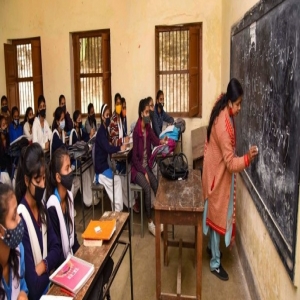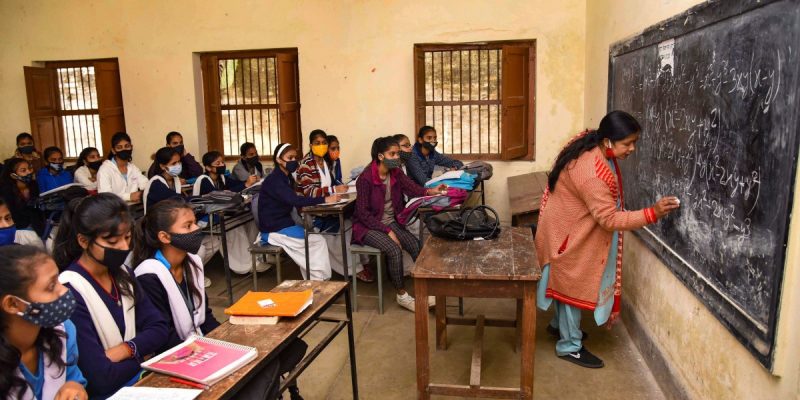
 Rajani George
Rajani George

The journey from my childhood school days to today's modern classrooms mirrors the sweeping changes that technology has brought to the educational landscape. As I reflect on this transformation, I am struck by the stark contrasts and the evolving role of technology in shaping how we learn.
Growing up, my daily trek to school was a community activity. Along with friends from the neighbourhood, I walked several kilometres, our chatter and laughter creating a lively start to each day. The tools we had were simple yet effective. We wrote on slates, using stems from local plants dipped in water to erase our markings—a sustainable practice long before the term became a global call. Our classrooms were bare-bones, equipped only with a chalky blackboard and the essential textbooks. Learning was a straightforward affair, heavily reliant on rote memorisation and direct instruction from teachers who were as much disciplinarians as they were educators.
Fast forward three decades and the educational tools at our disposal have evolved dramatically. Traditional blackboards have given way to digital panels and smart devices, transforming every classroom into a portal to the vast world of online information. This shift isn't just about replacing old materials with new; it's a fundamental change in the teaching paradigm. Interactive smartboards, connected to the internet, allow teachers to pull in resources from around the globe in real time, making lessons more engaging and diverse. Students today can experience virtual field trips, interact with global experts, and access cutting-edge simulations that make complex concepts easier to grasp.
However, the most revolutionary change is perhaps the integration of Artificial Intelligence (AI) into education. AI-driven platforms can adapt to individual learning styles, offering personalised content that optimises the learning process for each student. These systems can assess a student's progress in real-time, adjusting the difficulty and style of content to suit their needs. This technology has the potential to redefine roles within the classroom, shifting the teacher's focus from general instruction to more tailored mentorship and support.
Despite these advancements, I find myself pondering the future implications of AI in education. The looming possibility that traditional teaching roles may become obsolete raises critical questions about the aspects of education that technology cannot replicate. Teachers do more than impart knowledge; they inspire, mentor, and guide students through social and emotional landscapes. The rapport between a teacher and a student fosters respect, encourages socialisation, and nurtures moral values—elements that are deeply human and irreplaceable by machines.
The prospect of AI completely replacing teachers may seem efficient on a superficial level, but it overlooks the essence of education as a human-centred process. While AI can provide information, it cannot replicate the human connection and the profound impact it has on a student's development. The emotional support, the understanding of complex human behaviours, and the ethical modelling that teachers provide are critical to shaping not just educated but well-rounded individuals.
As we stand on the brink of this new era, it is crucial to remember that technology should be a tool to enhance the educational experience, not a replacement for the human touch that nurtures young minds. Embracing AI and other technological advancements in education must be done with a careful balance, ensuring that while we strive for efficiency and accessibility, we do not lose the heart of teaching—the very human art of helping others grow, not just intellectually but also emotionally and morally.
Looking forward, it is clear that the future of education will be shaped by both technology and the enduring values that have always underpinned effective teaching. The challenge will be to integrate these new tools in a way that preserves the essential human elements of education, ensuring that the classroom of tomorrow is one where technology serves humanity, not replaces it.